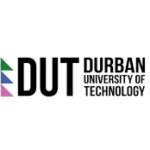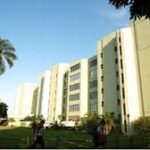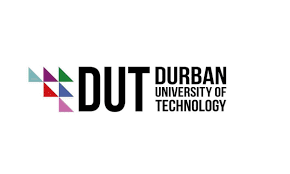DUT is a leading university in South Africa, offering a wide range of undergraduate and postgraduate courses.
Established in 2002 through the merger of Technikon Natal and ML Sultan Technikon, DUT has continually evolved to become a leading multi-campus university situated in the heart of KwaZulu-Natal, South Africa.
It has five campuses in Durban and two in Pietermaritzburg.
DUT is committed to providing its students with a high-quality education that is relevant to the needs of industry and society.
The university also has a strong focus on research and innovation.
In this post, I will be providing specifically vital information on Durban University of Technology (DUT) courses and requirements.

Durban University of Technology (DUT) Overview
Established in 2002 through the merger of Technikon Natal and ML Sultan Technikon, DUT has continually evolved to become a leading multi-campus university situated in the heart of KwaZulu-Natal, South Africa.
DUT is a diverse and vibrant university community, with students from all over South Africa and the world.
The university is committed to creating an inclusive and supportive environment for all of its students.
DUT is a highly-rated university and has been ranked among the top 500 universities in the world by the Times Higher Education World University Rankings.
Here are some of the things that make DUT a great university:
Wide range of courses to choose
from High-quality education
Focus on research and innovation
Diverse and vibrant university community Inclusive and supportive environment
Highly rated university If you are interested in studying in South Africa, DUT is a great option to consider.
Durban University of Technology (DUT) Courses
| Diverse Course Offerings at DUT |
|---|
| Accounting |
| Architecture |
| Biomedical technology |
| Chemical engineering |
| Civil engineering |
| Computer engineering |
| Construction studies |
| Consumer sciences |
| Design |
| Electrical engineering |
| Fashion design |
| Fine art |
| Food technology |
| Graphic design |
| Horticulture |
| Information technology |
| Journalism |
| Law |
| Management |
| Marketing |
| Mathematical sciences |
| Mechanical engineering |
| Media studies |
| Nursing |
| Pharmacy |
| Physics |
| Quantity surveying |
| Textile technology |
| Tourism |
These courses reflect the diverse academic offerings at DUT, catering to a wide range of interests and career paths.

List of Graduate Degrees and Post-graduate Degrees at Durban University of Technology
Let’s explore the diverse range of undergraduate and postgraduate courses offered by the Durban University of Technology (DUT) across its various faculties.
Undergraduate Courses at Durban University of Technology (DUT)
DUT is known for its comprehensive selection of undergraduate degree programs, catering to a wide array of academic interests and career aspirations.
Here’s a glimpse of the undergraduate degrees available:
- Bachelor of Applied Science (BASc): This degree provides a foundation in applied sciences and is ideal for those looking to pursue careers in fields like chemistry, biology, or environmental science.
- Bachelor of Arts (BA): DUT offers a BA program that covers various disciplines within the arts and humanities, allowing students to explore their interests in areas such as languages, literature, or social sciences.
- Bachelor of Commerce (BCom): The BCom program at DUT encompasses various specializations, including finance, marketing, and management, preparing students for diverse roles in the business world.
- Bachelor of Engineering (BEng): Engineering enthusiasts can choose from a range of engineering disciplines, including civil, electrical, mechanical, and computer engineering, among others.
- Bachelor of Fine Arts (BFA): This program is tailored for creative individuals who wish to pursue careers in fine arts, graphic design, fashion design, or other artistic fields.
- Bachelor of Information Science (BIS): In the digital age, information science is vital. DUT’s BIS program focuses on information management, data analysis, and IT.
- Bachelor of Science (BSc): The BSc program offers a diverse range of majors in fields such as mathematics, physics, and biomedical technology, providing students with a strong scientific foundation.
- Bachelor of Technology (BTech): BTech programs are designed to provide practical knowledge and skills for specific careers. They cover areas like engineering technology, journalism, and more.
Postgraduate Courses at Durban University of Technology (DUT)
DUT also offers an array of postgraduate degrees, allowing students to look deeper into their chosen fields and pursue advanced studies.
Here are some of the postgraduate degrees available:
- Master of Applied Science (MASc): MASc programs are research-focused and provide students with an opportunity to conduct in-depth research in areas like applied sciences or engineering.
- Master of Arts (MA): MA programs are available for students interested in fields such as literature, history, or social sciences, allowing for advanced study and research.
- Master of Commerce (MCom): MCom programs goes into advanced business concepts, including finance, economics, and marketing, preparing students for leadership roles in the corporate world.
- Master of Engineering (MEng): MEng programs offer specialized knowledge in engineering disciplines, allowing students to become experts in their chosen field.
- Master of Fine Arts (MFA): For those in the creative arts, MFA programs offer advanced training in areas like fine arts, fashion design, or graphic design.
- Master of Science (MSc): MSc programs cover various scientific disciplines, including mathematics, biomedical technology, and more, enabling students to engage in advanced research.
- Doctor of Philosophy (PhD): The highest academic achievement, a PhD, involves conducting original research and contributing to the body of knowledge in a specific field.
| Undergraduate Degrees | Postgraduate Degrees |
|---|---|
| Bachelor of Applied Science (BASc) | Master of Applied Science (MASc) |
| Bachelor of Arts (BA) | Master of Arts (MA) |
| Bachelor of Commerce (BCom) | Master of Commerce (MCom) |
| Bachelor of Engineering (BEng) | Master of Engineering (MEng) |
| Bachelor of Fine Arts (BFA) | Master of Fine Arts (MFA) |
| Bachelor of Information Science (BIS) | Master of Science (MSc) |
| Bachelor of Science (BSc) | Doctor of Philosophy (PhD) |
| Bachelor of Technology (BTech) |
What Are The Entry Requirements for Durban University Of Technology (DUT)?
The general entry requirements for studying in DUT to gain admission into undergraduate programs
- A National Senior Certificate (NSC) with a minimum average of 50%
- A pass in English Language and Mathematics
- Specific subject requirements for certain courses
Entry requirements for postgraduate courses at DUT vary depending on the program, and prospective students are encouraged to visit the DUT website for specific course details and entry requirements.
Application Details for DUT
- Application Period: Applications are currently open for prospective students who wish to study at DUT in the new academic year.
- Application Deadline for Undergraduate Courses: The deadline for undergraduate courses can be found on the school website. It is important to ensure that your application is submitted before this date to be considered for admission.
- Application Submission: To initiate your application, you can visit the DUT website or use their designated application portal. Follow the instructions provided on the website for a smooth application process.
- Communication from DUT: After submitting your application, DUT will review your application. If your application is successful, you can expect to receive communication from DUT regarding your admission status and further instructions.
- Required Documentation: Upon receiving communication from DUT, you will be required to submit specific documentation. This typically includes your National Senior Certificate (NSC) results and certified copies of your ID and passport.
- Course-Specific Requirements: Keep in mind that certain courses may have additional requirements or earlier application deadlines. Therefore, it is essential to carefully review the DUT website and course-specific information to ensure that you meet all the necessary criteria for your chosen program.
Stay Informed
It’s advisable for prospective students to regularly check the DUT website for the most up-to-date information on application procedures, requirements, and any changes in deadlines or criteria.
Meeting application deadlines and providing the required documentation in a timely manner are crucial steps in securing your spot at DUT for any new academic year.
For more detailed and course-specific information, please visit the official DUT website for accurate and comprehensive guidance on the application process.
Durban University of Technology (DUT) Courses, Requirements And Locations
Durban University of Technology (DUT) has a total of seven campuses, with five located in Durban and two in Pietermaritzburg, all situated in the KwaZulu-Natal province of South Africa. Here is a list of the campuses:
Durban Campuses:
- City Campus
- Indumiso Campus
- Ritson Campus
- Steve Biko Campus
- Westville Campus
Pietermaritzburg Campuses:
- Midlands Campus
- Steve Biko Campus
These campuses collectively provide a wide range of educational opportunities and facilities to students, making DUT a prominent and accessible institution for higher education in the region.
Durban University of Technology (DUT) Application Fee
- Application Fee for South African Citizens: R250
- Application Fee for International Applicants: R300
- The application fee is non-refundable and must be paid before your application can be processed.
- There are two methods for paying the application fee:
- Online Payment:
- Create a DUT student account on the university’s website.
- Log in to your account and make the payment using a credit or debit card.
- Payment at DUT Campus:
- Visit any DUT campus.
- Go to the cashier’s office.
- Pay the application fee either in cash or by card.
- Online Payment:
- It’s important to note that there is no application fee required to accept an offer of admission to DUT.
This information provides clarity on the application fee structure and payment options for prospective students applying to DUT.
Durban University of Technology (DUT) Monthly Allowance for NSFAS-Funded Students
The Durban University of Technology (DUT) extends financial support to students through various programs, with a focus on aiding those from disadvantaged backgrounds. Here are some key details regarding financial assistance at DUT:
NSFAS-Funded Students:
- Monthly Allowance: R15,000 per year
- Payment Structure: Monthly installments of R1,250
- Purpose: Intended to cover essential living expenses, including food, transportation, and accommodation.
- Eligibility: Students must meet specific criteria, including a household income below a defined threshold, to qualify for NSFAS funding.
Financial Assistance for Non-NSFAS Students:
- DUT provides avenues for students who are not NSFAS-funded to seek financial support.
- Options include applying for bursaries, loans, and scholarships offered by DUT or external organizations.
- Work-study programs are available, enabling students to earn income while pursuing their studies.
These financial assistance initiatives reflect DUT’s commitment to ensuring that students have access to the necessary resources and support to pursue their education, regardless of their financial circumstances. This approach contributes to a more inclusive and accessible higher education environment.
Durban University of Technology (DUT) Faculties
The Durban University of Technology (DUT) is known for its diverse array of undergraduate and postgraduate courses across various faculties.
Here’s an overview of the faculties and the types of courses they offer:
1. Faculty of Applied Sciences:
- Applied Chemistry
- Applied Physics
- Biotechnology and Food Technology
- Chemical Engineering
- Environmental Health
- Horticulture
- Information Technology
- Laboratory Technology
- Mathematics and Statistics
- Medical Laboratory Sciences
- Physics
2. Faculty of Arts and Design:
- Communication Design
- Drama Studies
- Fashion and Textiles
- Fine Art and Jewellery Design
- Graphic Design
- Interior Design
- Journalism
- Radio and Television
- Somatology (Health and Skincare)
- Video Technology
3. Faculty of Engineering:
- Civil Engineering
- Computer Systems Engineering
- Construction Management and Quantity Surveying
- Electrical Engineering
- Electronic Engineering
- Industrial Engineering
- Information Technology
- Mechanical Engineering
- Town and Regional Planning
4. Faculty of Health Sciences:
- Biomedical Sciences
- Chiropractic
- Dental Sciences
- Environmental Health
- Homeopathy
- Medical Orthotics and Prosthetics
- Nursing
- Optometry
- Pharmaceutical Sciences
- Radiography
- Somatology (Health and Skincare)
5. Faculty of Management Sciences:
- Accounting and Informatics
- Business Administration and Management
- Cost and Management Accounting
- Economics and Finance
- Entrepreneurial Studies
- Human Resource Management
- Information and Corporate Management
- Marketing
- Office Management and Technology
- Public Management
Please note that this is a general overview of the faculties and the courses they offer at DUT. Each of these faculties likely offers a more comprehensive range of specific programs and degrees, including undergraduate and postgraduate options. Prospective students should visit the official DUT website for detailed information on the courses, entry requirements, and other program-specific details.
How Much Does Studying at Durban University of Technology (DUT) Cost Per Year?
Understanding the cost of studying at the Durban University of Technology (DUT) is essential for prospective students.
Here’s a breakdown of the tuition fees and additional expenses for both South African citizens and international students:
For South African citizens:
- Undergraduate Tuition Fees: R15,000 to R40,000 per year (varies by course)
- Postgraduate Tuition Fees: R20,000 to R50,000 per year (varies by course)
Additional Expenses for All Students (South African and International):
- Cost of Living: Approximately R10,000 per month (varies by lifestyle and city)
- Includes accommodation, food, transportation, and other essential expenses.
Total Estimated Annual Cost for South African Citizens:
- Undergraduate: R25,000 to R50,000 per year (tuition fees + cost of living)
- Postgraduate: R30,000 to R60,000 per year (tuition fees + cost of living)
For International Students:
- Undergraduate Tuition Fees: R30,000 to R80,000 per year (varies by course)
- Postgraduate Tuition Fees: R40,000 to R100,000 per year (varies by course)
Additional Expenses for All Students (South African and International):
- Cost of Living: Approximately R10,000 per month (varies by lifestyle and city)
- Includes accommodation, food, transportation, and other essential expenses.
Total Estimated Annual Cost for International Students:
- Undergraduate: R42,000 to R140,000 per year (tuition fees + cost of living)
- Postgraduate: R52,000 to R130,000 per year (tuition fees + cost of living)
Please note that these figures are estimations and can vary based on individual circumstances, lifestyle choices, and the specific city in which a student chooses to live.
It is essential for students to plan their finances carefully and consider additional costs such as books and personal expenses when budgeting for their education at DUT.
How much Does Durban University of Technology (DUT) Post-graduate Studies Cost Per Year?
Understanding the cost of postgraduate studies at the Durban University of Technology (DUT) and finding ways to manage expenses is crucial for prospective students.
Here’s a detailed breakdown:
For South African Citizens:
- Postgraduate Tuition Fees: R20,000 to R50,000 per year (varies by course)
Additional Expenses for All Students (South African and International):
- Cost of Living: Approximately R10,000 per month (varies by lifestyle and city)
- Includes accommodation, food, transportation, and other essential expenses.
Total Estimated Annual Cost for South African Citizens:
- Postgraduate: R30,000 to R60,000 per year (tuition fees + cost of living)
For International Students:
- Postgraduate Tuition Fees: R40,000 to R100,000 per year (varies by course)
Additional Expenses for All Students (South African and International):
- Cost of Living: Approximately R10,000 per month (varies by lifestyle and city)
- Includes accommodation, food, transportation, and other essential expenses.
Total Estimated Annual Cost for International Students:
- Postgraduate: R50,000 to R110,000 per year (tuition fees + cost of living)
Tips for Reducing the Cost of Postgraduate Studies at DUT:
- Apply for Bursaries and Scholarships: DUT offers various bursaries and scholarships for postgraduate students. Check the DUT website for information on available opportunities.
- Consider Part-Time Work: Explore part-time job opportunities available on campus or in the local area to supplement your income.
- Off-Campus Accommodation: Consider living off-campus, as it can often be a more cost-effective option compared to on-campus housing.
- Cook Meals at Home: Preparing your own meals can be more budget-friendly than dining out frequently.
- Engage in Free Activities: Take advantage of free or low-cost entertainment options in Durban to reduce entertainment expenses.
- Budget Wisely: Develop a financial plan and budget to track your income and expenses effectively.
These tips and considerations can help you manage the cost of postgraduate studies at DUT and make informed financial decisions during your academic journey.
Conclusion
Durban University of Technology DUT’s pursuit of excellence has not gone unnoticed.
The Times Higher Education World University Rankings have consistently placed DUT among the top 500 universities globally.
This recognition is a testament to the university’s commitment to providing a world-class education.
In conclusion, if you’re considering pursuing higher education in South Africa, the Durban University of Technology (DUT) should be at the top of your list.
With its diverse faculties, emphasis on quality education, focus on research and innovation, inclusive community, and international recognition, DUT offers an educational experience that is second to none.
Choose DUT, and unlock a world of opportunities for your academic and professional future.
Also See:
Mangosuthu University of Technology (MUT) Courses and Requirements
University of South Africa (UNISA) Courses And Requirements
Stellenbosch University Courses: Find Requirements Here

